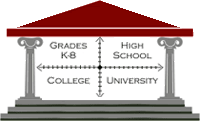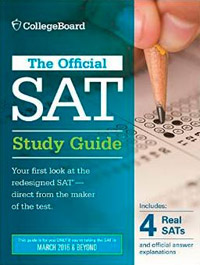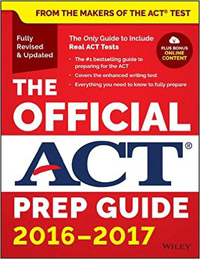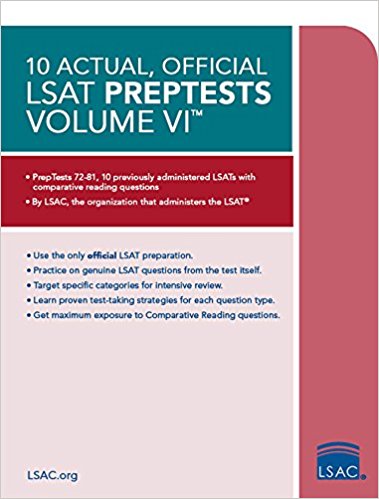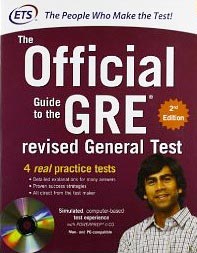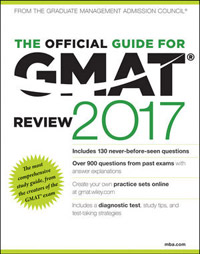|
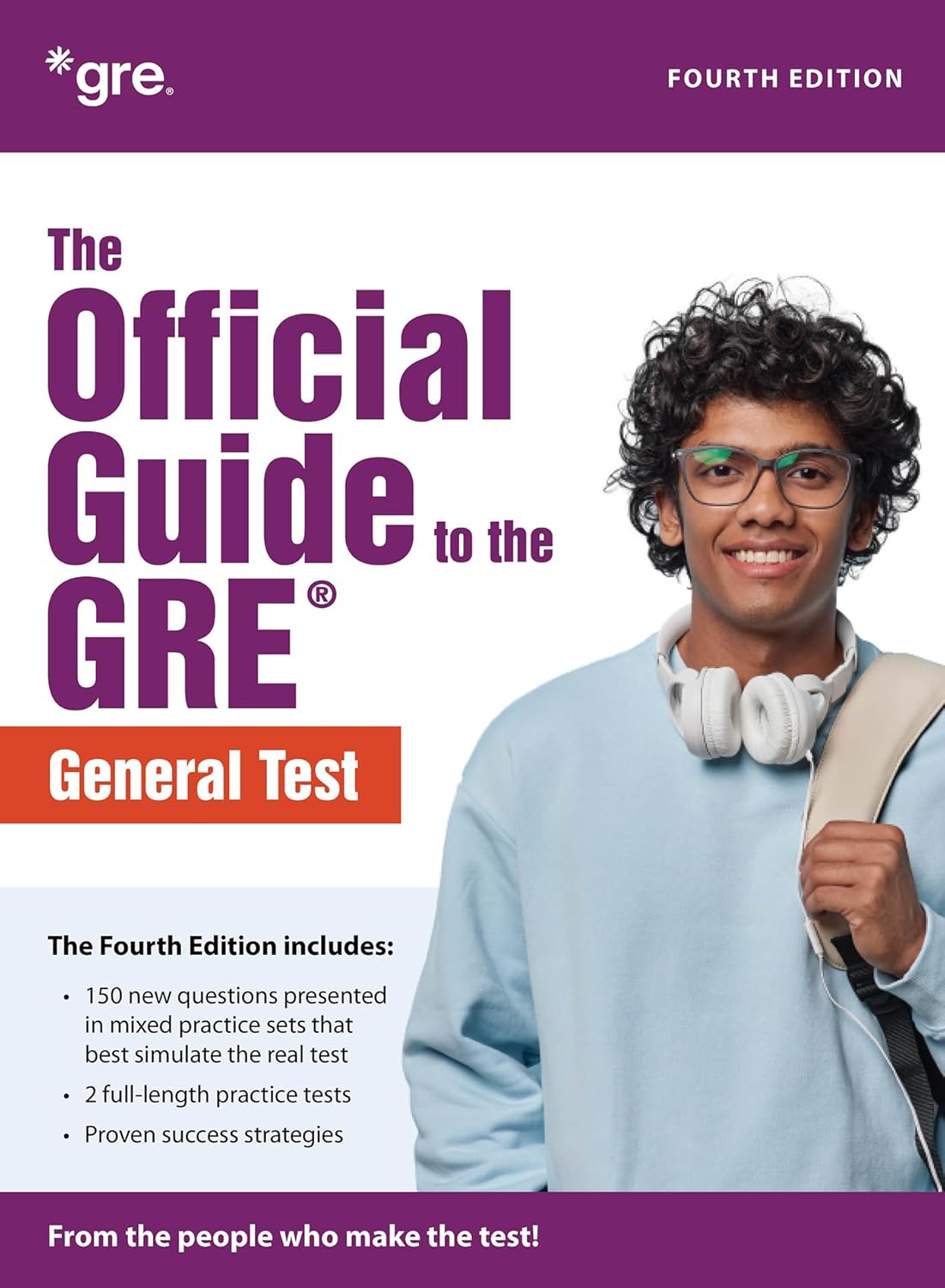
The New GRE is Nearly 2 Hours Shorter: Everything you Need to Know
First, read out my free GRE ebook, Master the GRE.
Then:
1) Go to the ETS website and "purchase" (for $0) the free GRE PowerPrep Online tests. This cloud-based software contains the only 2 real CATs (computer adaptive tests) that are freely made available to the public. After familiarizing yourself with the program using the Test Preview tool, take the first of the two practice tests.
https://www.ets.org/gre/test-takers/general-test/prepare/powerprep.html
Note: if you're looking for a diagnostic score, then make sure to select the timed test--the untimed test will not give you a score, and is exactly the same as Timed Practice Test #1, with easy second sections. If you're anxious about taking a practice test at this point, then feel free to go ahead and take the untimed version—though you should be aware that it won't be scored.
You should also consider eventually purchasing, taking, and reviewing the 3 (paid) PowerPrep Plus exams, which also include brief official answer explanations from ETS. These exams (along with the 2 free tests) are the only 5 official GRE practice exams in the current format.
For explanations to the free tests, check out the free guide of explanations to PowerPrep classic tests 1 and 2 (Vince and Brian's GRE PowerPrep Explanations) and free book of GRE vocabulary mnemonics that I've co-authored (GRE Vocab Capacity)—as well as my GRE AMA on Reddit.
Your score on Timed Practice Test #1 is your baseline score. If your initial score is low, don’t worry—you haven’t started preparing yet. If for some reason you’re not yet comfortable taking the first practice test, then switch steps #2 and #1.
Quick tip: if you choose to write the essay, then please be warned that PowerPrep has a bad reputation for swallowing up test-takers' essays--the software is a bit clunky, and for some reason, after you write them they have a tendency to disappear. So I strongly recommend that you write your essays on an outside word processor where your work can be saved as a backup, or at least make sure to cut-and-paste the text of your essay into a text document when you are done.
Make sure to get the most out of your 2 free GRE PowerPrep Tests by re-taking them in order to access the "hidden sections". Did you know, for example, that there are twice as many questions on each of the 5 GRE PowerPrep tests (108 questions per exam) as there are on any one test taker's exam (54)?
2) Purchase one, preferably two (the second copy should be left blank) of the Official Guide to the GRE. This book contains invaluable practice problems, information, and two additional paper tests. Start working through the book from front to back. If you get stuck on something, then just mark the page and move on. The idea is to get yourself familiarized with the test as much as you can before you start taking a class or working with a tutor. I can also recommend the Manhattan Prep 5-lb book of GRE Practice Questions, which does not include real GRE questions but is an excellent resource for practicing specific types of GRE skills.
As far as all-in-one GRE strategy guides, I can recommend my own e-book, Master the GRE, as well as the Manhattan Prep Strategy Guides, GRE Prep by Magoosh, Barron's GRE and McGraw-Hill's GRE. I can of course also recommend the guide to the GRE PowerPrep Online Software that I co-wrote, Vince and Brian's Free GRE PowerPrep Explanations. Official questions from ETS are always best!
3) Set a score improvement goal. "Halfway closer to perfect" (for example, if you currently have a 300/340 score, then you should aim for 320) is a good general estimate.
4) Take advantage of free and/or paid online GRE resources from companies and individuals such as GregMat.com (only $8/month), The Tested Tutor, Target Test Prep, GRE Quantum Grad Prep, Greenlight Test Prep, and Magoosh.
Be careful when trying to learn by video exclusively, however. It is important to understand that video learning is often not the best type of learning. It's easy to watch a video, of course, but it often doesn't lead to great retention and test-taking awareness. Working on practice questions, reviewing them, putting them aside for 7-10 days to forget the details, then reworking the ones you got wrong until you have fixed your mistakes is much more valuable than passive study.
ADDITIONAL BOOKS AND MATERIALS:
If you’re serious about getting the highest score possible, then you should consider using the following guides:
GRE Vocab Capacity (Full disclosure: as is the case with Vince and Brian's Free GRE Powerprep Explanations, I am one of the book’s co-authors. An extensive vocabulary is a must for the GRE Verbal Section.)
Official GRE Quantitative Reasoning Practice Questions - Additional Math Practice
Official GRE Verbal Reasoning Practice Questions - Additional Verbal Practice
Cliff's Notes Math Review for Standardized Tests - Excellent Math Review, especially for those who haven't taken a math class in a while.
5) Explore the free online resources from ETS, which are quite extensive. These resources even include a list of all possible issue essay topics that could show up on the test, for example.
6) Since there are only 5 official ETS CATs (computer adaptive tests), You might want to find another source of CATs, since most students will need to take around 8 full practice GREs before they are fully prepared for the exam.
My preferred company for this purpose is Manhattan GRE aka Manhattan Prep (now owned by Kaplan): I can begrudgingly recommend Manhattan’s 6 online GRE CATs, which are a bit harder than the real thing, and slightly different from the real GRE, but decent imitations nonetheless, and a good value for the price. The first test is free, so I encourage you to "try before you buy."
As far as textbooks, you can either buy the entire series of books, which is helpful but pricey, or you can simply buy the books individually, based upon your needs. (You will notice that I have linked to older versions of the books. I have done so on purpose, as I believe that the quality of Manhattan's materials has declined since being purchased by Kaplan.)
7) If you need lots of remedial help, or if you haven’t taken a college class in a long time, then it might make sense to take a GRE classroom course. But don’t overpay for an “elite” course — most of these courses are the same, and focus on content as well as basic strategies. Save your money for a qualified private tutor instead.
8) If you can afford it, then find an expert GRE tutor like me, and schedule some lessons. If you are willing to be tutored via Zoom, FaceTime, Skype, phone, or another online tool, then you may choose from among any tutor nationwide. Before purchasing time with your tutor, I suggest that you first schedule a phone consultation to discuss strategies and scheduling.
Working with a private tutor — either in-person or online — is the very best way to maximize your score, for a variety of reasons:
1) You are given personalized attention, lessons tailored to fit your schedule, and the opportunity to discuss each question in-depth until you are fully satisfied.
2) Private tutors are usually the best instructors.
3) A skilled private tutor will serve as a friend and confidant, hold you accountable, give you specific assignments and work on any problem areas so that all you have to do is put in the effort. Simply talking about the questions with your tutor helps aid your understanding of each question and your test-taking strategies.
9) Study, Study, Study. Practice, Repeat, Forget, Practice, Repeat, Forget, Practice, Repeat…Remember.
10) When you’re ready, decide on a test date and register for the test.
11) Take periodic practice CATs in the lead-up to the actual GRE. I recommend that you take at least 8 CATs total. So if you are preparing for 24 weeks, for example, then you should take a full practice test every 3 weeks.
12) You’re ready. Good luck! Get detailed directions to the test center and get there ahead of time. Be prepared and remember that you will get your verbal and quant scores (although not your essay score) immediately after the test, unless you decide to cancel your scores.
I do NOT recommend canceling your score under any circumstances—if you cancel your score you will have no way to know how you did, and you may have done better than you thought. Remember that most students do better the second time they take the GRE.
Besides, thanks to the new ScoreSelect option, you may now take the GRE as many times as you want (up to five times a year), without your lower scores being seen by anyone but you. In a nutshell, ScoreSelect allows you to choose which scores you want to send to graduate programs, and which scores you want to hide from view, which takes away some of the pressure on test day, and gives you the option of taking the GRE multiple times to achieve your optimum score.
Homework and Practice Tests - Rules, Tips and Suggestions (and the art of Blind Repetition)
The best way to prep for the GRE is simple on its face, yet complex in its execution.
On the face, it’s simple: work through the Official Guide and the Math/Verbal Guides from front to back. Take (and review!) all 5 ETS Official PowerPrep tests. Take (and review!) all 6 Manhattan CATs. Study lots of vocabulary. Practice whenever you get a chance, and vary between timed and untimed exercises. Building fundamentals and avoiding careless mistakes is key to your progress.
However, the question is exactly how to work your way through the books and other materials.
The problem is that we often fool ourselves into thinking that we’ve resolved our issues with a GRE question, because we have read the explanation and now understand why the correct answer is correct. In other words, because I now know that the answer is A, and can put together the reasons why after the fact, I can move on to other questions, in the belief that I’ve learned my lesson and will not make that mistake again. It’s often a mistaken belief, however.
The issue here is that *understanding* the correct answer is not the same as being able to execute the question from scratch and find the correct answer. The same applies to vocab. Just because you’re looking at the definition of a word, and you know its meaning in the moment, doesn’t mean that you’ll be able to access its definition under real test conditions. As the saying goes, “everything is obvious once you know the answer.” Of course you think you know the meaning to a word in the moment that you’re reading the definition. It’s only when the answer is taken away, and we are given time to reset our short-term memory, that we can truly determine our level of understanding.
Another problem is that once we remember the answer to a question, it loses much of its utility. If I know that the answer is B before I start a question, then I am going to be biased toward that answer, which affects my response and makes it much different from the process of taking a test where the answers are undetermined.
Thus, we need to do 2 things:
1) Blind Repetition. This means that when we repeat a question, we do not look at our previous work, or check the correct answer beforehand. This is much easier with a blank copy of the book at your disposal.
2) Wait until you’ve forgotten it. Don’t repeat questions whose answers you still remember. Complete enough new questions in the meantime so that when you return to a question, you can evaluate it impartially.
This is where the second, blank copy of the book will prove its worth. It prevents you from “spying on” your previous work, or the correct/incorrect answer, and serves as a way of truly telling whether you understand a question. Your tutor will also help keep you honest, of course.
- 2:1 ratio: You should spend at least two hours on homework for every one hour you spend with your tutor. Ideally, the ratio is closer to 3:1. That means, for example, that if you buy a 25-hour package with one of our tutors, that you will be spending at least 75 hours on self-study, which of course adds up to 100 hours of preparation. I have found that GRE scores will continue to improve past 100 hours of prep, but you will likely see diminishing returns after that point.
-Vary the length of time that you study and work on practice questions. Sometimes you might study for 2 hours, sometimes for 1 hour, sometimes for 30 minutes and maybe even just for 15. In addition, alternate between timed sections and untimed sections: working on questions untimed is a crucial, yet often overlooked, element of test prep. (However, even when the section is untimed, and you are not concentrating on the clock, you might want to passively monitor your pace by marking your start and end times.)
-Make sure to take a full CAT at least once a month to track your progress.
Good luck! The GRE is a tricky test, but it can be conquered with perseverance and the right guidance.
This page is updated frequently and I am always open to input or questions.
Regards,
Brian
Pro GRE Tutor Since 2002 & Perfect 340 Scorer
copyright 2002-2025 Brian R. McElroy
Founder and President, McElroy Tutoring Inc.
email: mcelroy@post.harvard.edu
Toll-Free: 1-866-584-TUTOR (8886), x 4
Direct (Call or Text): 619-889-2935
www.McElroyTutoring.com
Back to Blog Home
|


